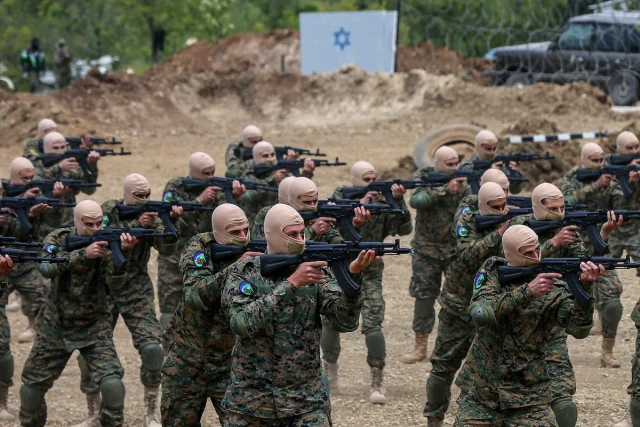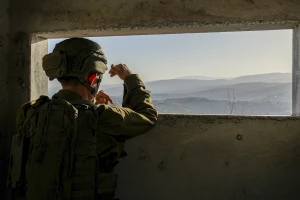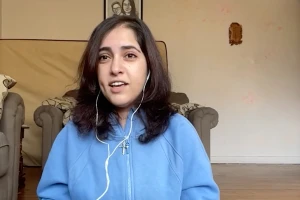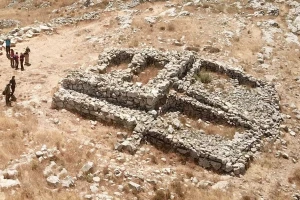Is Lebanon unable, or unwilling, to stop Hezbollah?

The northern front is simmering again, and Israel may soon face an impossible choice.
One year ago, on Nov. 27, 2024, Israel and Lebanon signed a ceasefire agreement brokered by five mediating countries, including the United States. For nearly a year, that deal mostly held. But in recent weeks, the calm has given way to escalating strikes, rising tensions, and renewed questions about Lebanon’s willingness, or even ability, to rein in Hezbollah.
Israel has carried out a series of targeted strikes against Hezbollah assets in Lebanon, most notably killing senior military commander Ali Tabatabai in Beirut, along with four other Hezbollah operatives.
The operation followed Israeli intelligence assessments that Hezbollah has been attempting to re-arm and strengthen itself, again with direct Iranian assistance, despite commitments that the Lebanese government would disarm Hezbollah and Hamas operatives within its borders.
Lebanese President Joseph Aoun in recent days accused Israel of refusing to implement international resolutions, claiming Lebanon has adhered to the cessation of hostilities for nearly a year and has repeatedly presented peace initiatives. Similarly, Prime Minister Dr. Nawaf Salam wrote on X that Lebanon “will work through all political and diplomatic means” with regional and international allies to protect the Lebanese people and prevent further escalation.
But the central question remains: Is Lebanon truly unable to stop Hezbollah, or simply unwilling to disarm the Iranian-backed terror group?
According to IDF Brig. Gen. (Res.) Amir Avivi, the answer lies somewhere in the middle.
The Lebanese government and army are extremely weak, and the Lebanese Armed Forces (LAF) themselves include significant Shia elements, some aligned with Hezbollah.
“We see the army trying [to disarm Hezbollah] but not being very effective,” Avivi told All Israel News. “If you do not degrade Hezbollah dramatically, it will be very difficult for the Lebanese government.”
Lebanon, he explained, is facing a deep economic crisis and is eager to join the Abraham Accords. But both the United States and Israel have made it clear that no agreements will move forward until Hezbollah is dismantled. Lebanon’s future prosperity, Avivi said, depends on it.
Despite Lebanon’s public criticism of Israel’s military actions, Avivi believes the country’s leadership privately welcomes Israeli strikes that weaken Iranian influence and shift Lebanon closer to Saudi Arabia and the United Arab Emirates—regional powers with which Lebanon hopes to align.
“For Lebanon, Hezbollah is a big problem, and they are happy to see the IDF dealing with this issue seriously,” Avivi said. “Who would have thought that the Lebanese want peace with Israel? But when Prime Minister Benjamin Netanyahu spoke at the United Nations earlier this year about possible agreements with Syria and Lebanon, he was serious. With Syria this is a waste of time. With Lebanon, there is a real chance.”
Avivi added that IDF action in the North will likely continue to intensify.
Although Hezbollah suffered decisive blows last year, including the assassination of Hassan Nasrallah and the destruction of much of its command network through the movie-like beeper campaign, it is rebuilding with alarming speed. Israel, Avivi stressed, cannot allow Hezbollah to recover.
One of the lessons Israel has internalized since the Oct. 7 massacre is that it can no longer “mow the grass,” the strategy of allowing terror groups to periodically rebuild. Instead, Israel is responding immediately to ceasefire violations to signal that every action will have consequences.
Israel’s inaction in the years leading up to Oct. 7, with Hamas and Hezbollah both amassing weapons, helped create the conditions for the current multi-front war. After the 2006 Second Lebanon War, Israel tolerated Hezbollah’s growing arsenal, which ultimately enabled the scale of the northern threat.
Iran, meanwhile, continues pouring money, despite heavy sanctions and domestic shortages, into rebuilding Hezbollah’s military capability.
“They are working tirelessly to try and build their assets, and we have to stop them,” Avivi said. “We are preparing the terms for the Lebanese to deal with Hezbollah. The government is weak, so we have to do more.”
Avivi believes Israel’s actions are being closely coordinated with both Lebanon and the United States. Last month, U.S. envoy Morgan Ortagus visited Beirut and urged Lebanese leaders to disarm Hezbollah within the year. But Avivi said U.S. officials understand that neither President Aoun nor the LAF are capable of doing so.
That raises the most uncomfortable question of all: Can Israel?
Middle East analyst Seth Frantzman agrees that while Lebanon’s leadership claims it wants to disarm Hezbollah and Hamas, “there is little evidence that they are actually collecting weapons and doing so.”
“It’s the same problem you see with Gaza, where we talk about disarmament, but I don't think you can ever find someone who defines it,” Frantzman told All Israel News. “What do they mean by disarmament? Is the government going to collect every illegal weapon?”
He notes that Hezbollah is unlikely to voluntarily hand over its weapons, and that Israel does not currently have a clear path to disarm the group either. Airstrikes can weaken Hezbollah but cannot achieve full disarmament.
While Israel can apply continuous pressure, Frantzman believes the most likely outcome is “a low-level war with Hezbollah in Lebanon, not a path toward normalization and peace.”
Meanwhile, Israel continues its campaign in Gaza. Even with so-called ceasefires in place, the war rages on at least two fronts.
And the northern pressure is only rising.
As the North heats up once again, the stakes extend far beyond Israel and Lebanon.
The future of the Abraham Accords, regional stability, and in some ways even U.S. strategic interests hinge on whether Hezbollah can be disarmed and contained. One year after the ceasefire was signed, the region stands at a crossroads, caught between the hope of normalization and the threat of a continually devastating war.
Want to help more people find our reporting from Israel? Leave a quick Google review of our website here.
.jpg)
Maayan Hoffman is a veteran American-Israeli journalist. She is the Executive Editor of ILTV News and formerly served as News Editor and Deputy CEO of The Jerusalem Post, where she launched the paper’s Christian World portal. She is also a correspondent for The Media Line and host of the Hadassah on Call podcast.
You might also like to read this:











